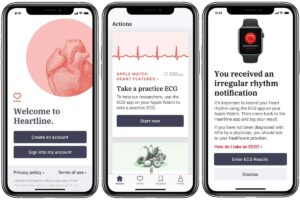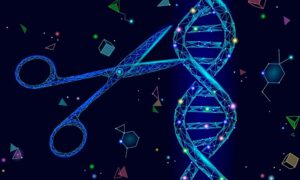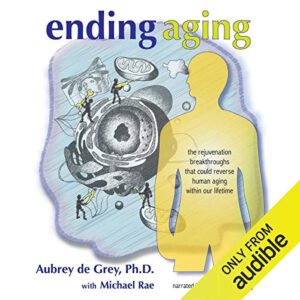Are you sick to death of being sick and dying?
Today, we have “sickcare.” You get sick. You get treatments. Some are useful, others not. Your choices are often limited by government. And you fight about how to pay the bills.
As you age, you’ll fall ill more often. You’ll find that treatments to stop your physical deterioration or inevitable end are often not allowed.
But if entrepreneurs have liberty to use emerging exponential technology, they will be able to create a true healthcare system and unleash the greatest revolution in human history: ending human aging.
The five techno-hacks to healthcare.
Consider the exponential technology breakthroughs that can be harnessed to replace “sickcare” with healthcare:
First, the cost of sequencing human genomes has dropped from some $100 million in 2001 (not including initial capital costs) to $10 million in 2007, to well under $1,000 today. Our genomes are the detailed blueprints of our biological makeups as unique individuals. With other data garnered about our biology and epigenomes, we’ll have the basis for individualized healthcare.
Second, researchers continue to improve analytic tools for understanding in our sequenced genomes and other bio-data what long-term risks and propensities for certain ailments we are subject to as individuals.
 Third, wearable diagnostics continue to improve. We currently have Apple Watches, Fitbits, Oura rings, and glucose readers that monitor temperature, heartbeat, sleep, blood sugar, and other biomarkers. In the future, improved diagnostics routinely will be able to measure your electrolytes, blood platelets, enzyme balances, and much more. Some of these diagnostics will be micro-nano-bots circulating in your system, always on guard for unwanted ailments.
Third, wearable diagnostics continue to improve. We currently have Apple Watches, Fitbits, Oura rings, and glucose readers that monitor temperature, heartbeat, sleep, blood sugar, and other biomarkers. In the future, improved diagnostics routinely will be able to measure your electrolytes, blood platelets, enzyme balances, and much more. Some of these diagnostics will be micro-nano-bots circulating in your system, always on guard for unwanted ailments.
Fourth, your real-time, real-world health data in the future could be monitored by an artificial intelligence (AI), referencing your individually sequenced genome and other bio-data. If factors suggest you’re on the verge of a heart attack or some other devasting health emergency, medics could be at your door before you know it.
 Fifth, future technology could mean you rarely face such emergencies. The CRISPR-cas9 genetic editing tool, for example, has been used to remove dangerous DNA from human genomes, curing certain cancers. It was recently used experimentally to turn off the production of tau proteins in brain neurons. Clumping of such proteins is associated with Alzheimer’s. Similar biohacks, stem cell therapies, Car-t treatment, artificial, lab-grown or regenerated placement organs, and a plethora of emerging breakthroughs could eliminate the underlying causes of such emergencies.
Fifth, future technology could mean you rarely face such emergencies. The CRISPR-cas9 genetic editing tool, for example, has been used to remove dangerous DNA from human genomes, curing certain cancers. It was recently used experimentally to turn off the production of tau proteins in brain neurons. Clumping of such proteins is associated with Alzheimer’s. Similar biohacks, stem cell therapies, Car-t treatment, artificial, lab-grown or regenerated placement organs, and a plethora of emerging breakthroughs could eliminate the underlying causes of such emergencies.
This is true healthcare!
Three reforms to open the way.
For a healthcare system to be ours, we need some policy reforms to open the way.
First, your data. Keeping you alive and well will depend on monitoring your genome and bio-data in detail, overseen by an AI. And the AI will be comparing your data to the data of others (with everyone’s actual identities scrubbed) to discover new, underlying bio-patterns in order to diagnose ailments and develop treatments. Massive data will be necessary.
But you will want assurance that neither governments nor unscrupulous private parties can use your data to control you. Thus, it will be necessary for the strongest privacy protections to be in place, allowing you to determine where and when your data is used.
Second, your insurance. Current health insurance is a dysfunctional hybrid. In part it is traditional pooling of resources to cover costs of unpredictable ailments. In any group, we know a certain percentage of individuals will suffer strokes but we can’t yet predict exactly who. So we all chip in a little and the unfortunate few who suffer will have their bills covered.
But health insurance today also includes costly government mandates. Worse, because government controls pricing for the largest portion of sickcare through Medicare, Medicaid and other programs, pricing is an incomprehensible and contradictory spaghetti-tangled mess. For a true healthcare system, insurers will need liberty to offer incentives to stay healthy and individuals will need true liberty to choose the levels of insurance that best suits them.
 Third, those darn regulators. Before a new treatment for any ailment can be sold to patients, the U.S. Food and Drug Administration must certify its safety and efficacy. But FDA is bureaucratic and unable to keep up with exponential technology advances. A Tufts study found it takes on average 10-12 years at a cost of nearly $3 billion to bring a new treatment from research lab to patient. Much of that cost is generated by the FDA certification process. Thousands of individuals each year suffer and die because of unnecessary FDA delays.
Third, those darn regulators. Before a new treatment for any ailment can be sold to patients, the U.S. Food and Drug Administration must certify its safety and efficacy. But FDA is bureaucratic and unable to keep up with exponential technology advances. A Tufts study found it takes on average 10-12 years at a cost of nearly $3 billion to bring a new treatment from research lab to patient. Much of that cost is generated by the FDA certification process. Thousands of individuals each year suffer and die because of unnecessary FDA delays.
One significant reform would be “Free To Choose Medicine” (FTCM). This approach would create a parallel track on which proposed treatments that had passed FDA safety tests and a least one efficacy trial could be offered to patients, with informed consent. Patient experiences with treatments, with privacy protected, would be logged in a database. This real-world data would allow promising treatments to receive final approval more quickly, alleviating much suffering and death. (A version of this approach, the Promising Pathway Act, is currently before Congress.)
Most serious ailments occur when we are older. Yet FDA usually refused to even consider treatments that don’t target particular diseases but could treat the underlying biological conditions that give rise to those ailments as we age. But researchers like Aubrey De Grey—a 2022 FreedomFest speaker—David Sinclair, Bill Andrews and others are coming to understand both the genetic and epigenetic factors—mitochondrial mutations, telomere shortening, cell atrophy—that constitute the aging process. De Grey observes that aging is really a “treatable condition.” Therefore, the most important FDA reform ever would be to allow certification of treatments targeting the “processes that constitute aging.”
 Celebrating your 200th birthday!
Celebrating your 200th birthday!
Throughout human history, aging has been seen by most as the inevitable fate with which you can rage against or make your peace with, but from which you can never escape.
All the science now suggests that this is not necessarily so, or that we can at least push back the dates of our demise.
Anti-aging pioneers point to two new realities they are creating. First is longevity: you get to celebrate your 200th birthday! Second is health: you celebrate it not in a hospital bed, hooked up to machines and tubes keeping your age-ravaged body alive, but with a brisk swim, walk, or jog and then party with friends and family!
This possible future is no longer science fiction. If researchers and innovators are free to develop and utilize the exponential technologies, if we have an education system that trains and nurtures innovative minds, and if we have a culture of optimism, purpose, joy in achievement and benevolence that tells us that anything’s possible, then “sickcare” will be part of a darker past and healthcare will be our shining future!
Edward Hudgins, Ph.D., is founder of the Human Achievement Alliance and an expert on technology policy. His career includes stints at the Heritage Foundation, Joint Economic Committee of Congress, the Cato Institute, the Atlas Society, and the Heartland Institute.

